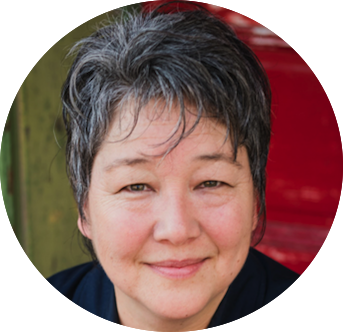by Teresa Graham Brett, JD, Partnership Community
 As a parent-to-be, I committed myself to learning about the?physical and emotional needs of children. I made conscious choices?about the foods we provided. I delved into research?about child development so I could provide developmentally appropriate?experiences. I thought about my own childhood and imagined how I might do things?differently than my parents.
As a parent-to-be, I committed myself to learning about the?physical and emotional needs of children. I made conscious choices?about the foods we provided. I delved into research?about child development so I could provide developmentally appropriate?experiences. I thought about my own childhood and imagined how I might do things?differently than my parents.
Outside of my parenting, I had spent 15 years working towards social justice in higher?education, I thought about how I wanted to raise children who understood the concepts of oppression, discrimination and bias so that they would neither accept nor perpetuate oppression themselves. However, I did little to understand the broader?social and cultural dynamics that informed my views on children, childhood,?and the institution of parenting.
It took five years after becoming a parent to realize that the?oppression I fought outside of my home was deeply entrenched inside my own?home in my relationship with the first child in my life. I began to see how?my use of power, control and domination of her (all while practicing attachment and ?gentle? parenting) were planting?the seeds for oppression and discrimination to be perpetuated in our society.
When my eyes were forced opened, I could no longer ignore the fact that our dominant cultural paradigm of children?and parenting is one based on fear, control and domination. We use institutions such as families, schools,?religion, legal and medical systems, to deny the basic rights of children to be treated?with respect and trust. We are a culture whose view of parenting, children,?and childhood is rooted in adult oppression of children. And my own parenting was no exception to this.
Our relationships with children from the time they are born create a?paradigm from which they will view and experience the world. This is the?nature of socialization. Because the majority of us?experience domination and control as children, we feel it is normal, even if?we fought against this injustice as children and teenagers. Notably, our fighting back against adult oppression was labelled ?teenage rebellion,? not a legitimate and natural response to oppression.
We must challenge?ourselves to question our own authority and power, not just the power and?authority of big corporations or governments.
Our culture (and we as individuals) construct a view of children that rationalizes control and?domination because we define children?s differences as deficiencies that must be overcome through a?long and controlling socialization process carried out all of our systems and institutions. This power-over paradigm teaches children to question themselves and rely on?authority figures to make decisions for them and to tell them what is right.?The need for autonomy and self-determination is sacrificed to the need for?order and productivity. Indoctrination into this kind of world-view is?easier if the rights of children as full human beings are dismissed and disregarded. We create fertile ground for all other forms of discrimination?and oppression to flourish in our society.
If we are to create broader social change, create a world where justice is a?fundamental value that is acted upon, we must challenge ourselves to unlearn the power, control and domination we?were subject to as children and that we subject children to as adults. We must challenge?ourselves to question our own authority and power, not just the power and?authority of big corporations or governments.
We must ask ourselves, ?How do I mirror the injustice in the world in my?relationships with the children in my life?? ?How can I live my life so?that my actions and my beliefs are congruent?? Not just in the values I?espouse, but in the small actions I take every day with those who are the?least powerful in my life. We do this not just for ourselves and the children in our life but for a future world that must be different from what we see now.
References
Bobbi Harro, ?The Cycle of Socialization? in Maurianne Adams, ed,?Readings in Diversity and Social Justice (New York, NY, Routledge 2000).
Stephen A. Grunland and Marvin K. Mayers, Enculturation and?Acculturation: A Reading for Cultural Anthropology,?http://home.snu.edu/~hculbert/encultur.htm, (December 26, 2010).
Doris Buhler-Niederberger, ?Introduction: Childhood Sociology, Defining?the State of the Art and Ensuring Reflection,? Current Sociology, 2010 58:?159-160.
Teresa Graham Brett, JD is the author of Parenting for Social Change: Transform Childhood, Transform the World (2011). She founded ParentingforSocialChange.com in 2009 to advocate for the liberation of children (and our world) through transforming child-adult relationships. She serves on the Board of Kindred World and works as Assistant Vice Provost for Inclusion and Multicultural Engagement at the University of Arizona.





Regarding, “We must ask ourselves, ?How do I mirror the injustice in the world in my relationships with the children in my life?? ?How can I live my life so that my actions and my beliefs are congruent?? Not just in the values I espouse, but in the small actions I take every day with those who are the least powerful in my life. We do this not just for ourselves and the children in our life but for a future world that must be different from what we see now.”
Where might we read and share our thoughts on “how do I?” “how can I?”? If I had it to do over, I would have Family Meetings and document everyone’s observations, feelings, needs, and requests. (This is what I know of Non-Violent Communication.) By everyone, I would start as soon as possible: two years of age maybe earlier. I should remember to do this when my grandkids start to get a little out-of-hand! Call for a meeting and listen TO EVERYONE! Thank you for writing this article, Teresa Graham Brett, JD, Partnership Community.